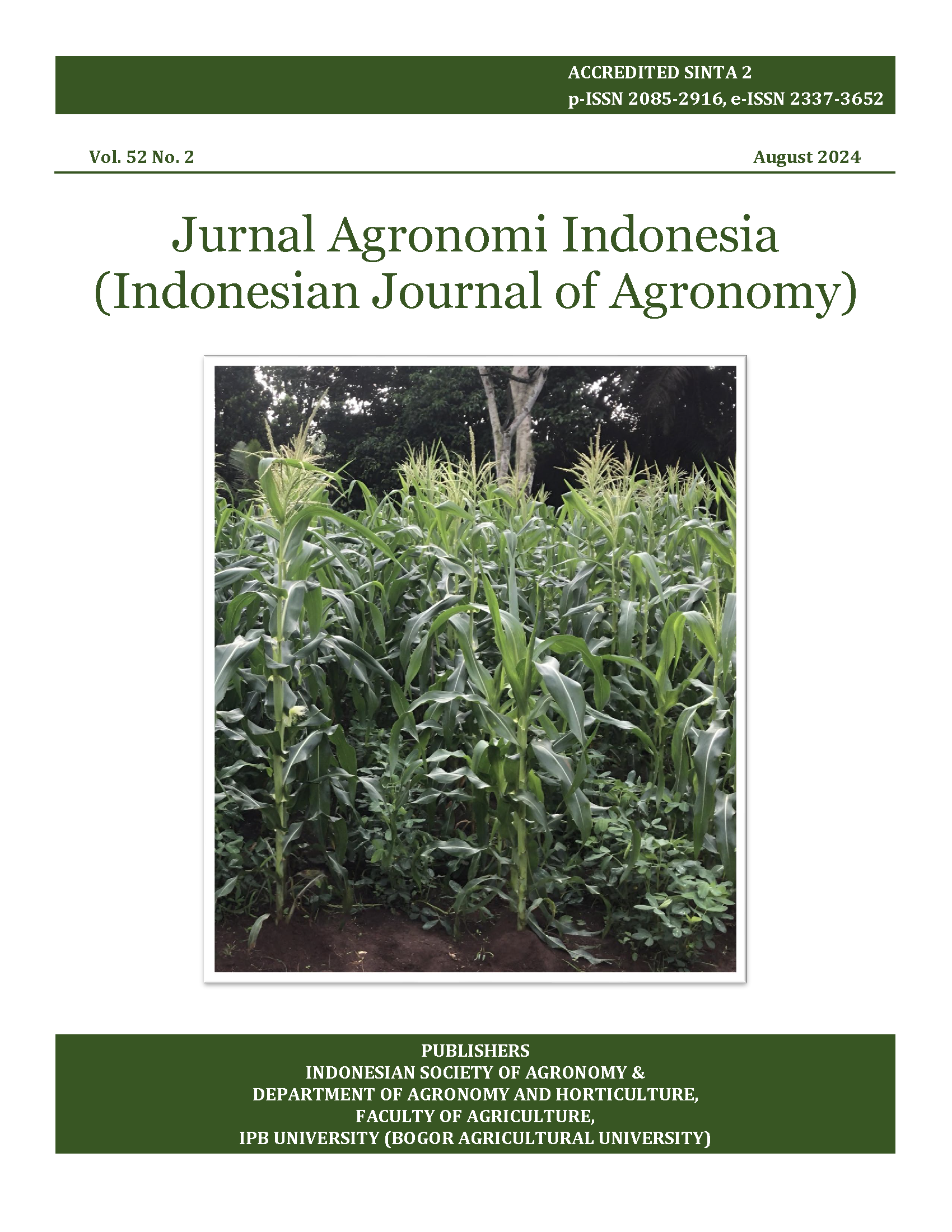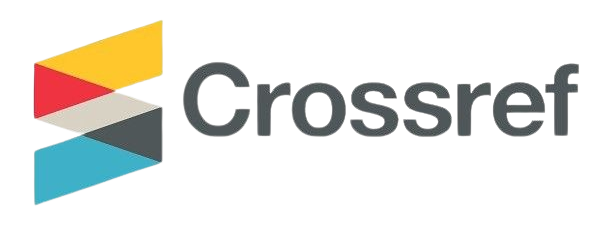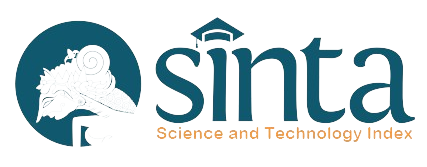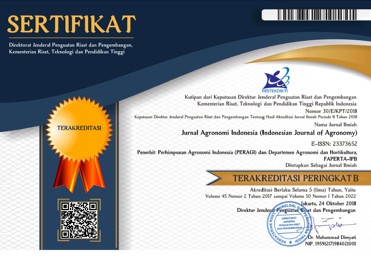Optimizing cultivation system and pest management in different types of rice varieties
DOI:
https://doi.org/10.24831/jai.v52i2.54078Abstract
Improving rice productivity and efficiency is the main goal of cultivation techniques to meet the demand for rice production. The aim of this research was to evaluate the suitability of rice varieties in cultivation systems, namely: organic cultivation + biological pest management (BPM), inorganic cultivation + BPM, and conventional cultivation. Different types of rice varieties, namely New Superior Varieties (NSV: INPARI-30, INPARI-32), New Plant Type (NPT: IPB-3S), and Superior Varieties from West Sumatra (Batang Piaman, Anak Daro), may exhibit differences in agronomic performance across various cultivation systems. This research was conducted at the Sawah Baru Babakan Experimental Farm, IPB University, Dramaga Bogor, using a factorial nested design with 4 replications. The results based on yield per hill and plot showed that Batang Piaman and INPARI-30 varieties were suitable for all organic + BPM, inorganic + BPM, and conventional cultivational systems. The INPARI-32 and IPB-3S varieties were more suitable for conventional cultivation and inorganic + BPM; while the Anak Daro variety was better in organic cultivation + BPM. Utilizing varieties with different characteristics for better yield performance could be considered with obtaining the suitability of the cultivation system, whether organic + BPM, inorganic + BPM, or conventional.
Keywords: Chemical pest control; conventional cultivation; organic cultivation; integrated pest management













